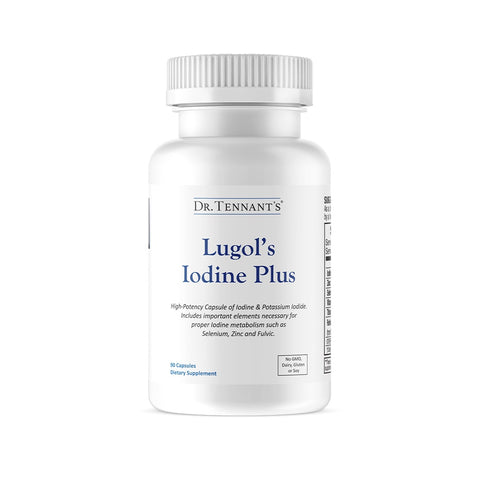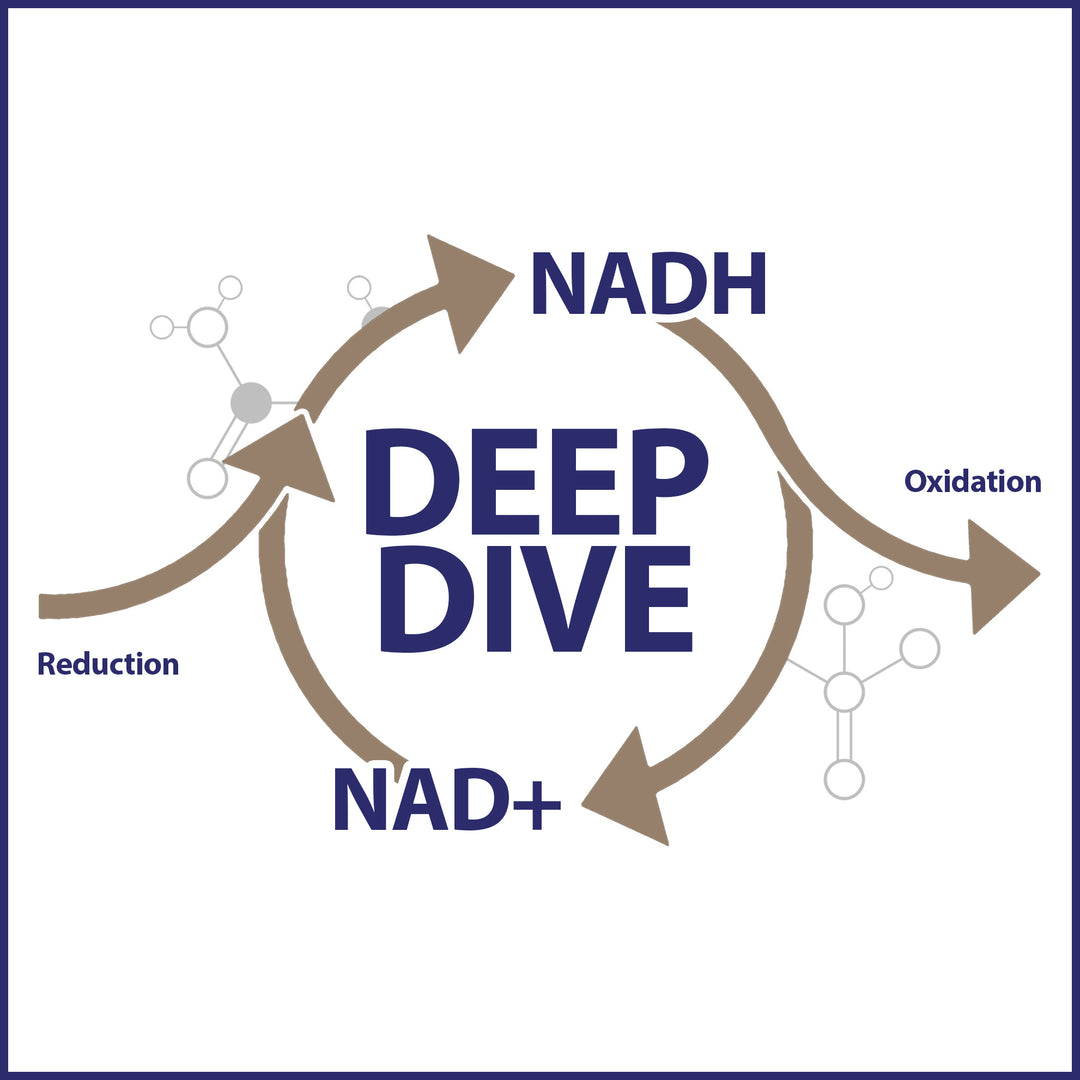75% of the population faces things such as indigestion, heartburn, bloating and maybe even some embarrassing gas on a regular basis.
As always, here at Tennant Products, we go overboard to help you understand your body, so you can make the best choice for you. This post is a little longer than normal, but we know you will learn a lot. So sit back and dive into understanding your digestive system, your stomach and stomach acid.
The Digestive System
Did you know that 60-70 million Americans are living with digestive disease and nearly two-thirds have had a GI (gastrointestinal) issue in the past week, including heartburn/reflux, bloating, diarrhea and constipation? For many of us, this is all too familiar. So, how does one achieve digestive health?
Dr. Tennant always says that “If you give the body what it needs, it is programmed to heal itself”. One area where this is especially true is in the stomach. Digestion influences so many other functions of the body, so it is crucial to overall health that the stomach is working correctly.
Digestion begins in the mouth, where chewing mechanically breaks down the food, and saliva starts chemically breaking it down. Food only stays in the mouth for a few minutes at most, where it then moves to the esophagus. Once it passes through the lower esophageal sphincter (also known as the cardiac sphincter), it reaches the stomach. The stomach can hold up to four liters of material at a time, and it both stores and breaks down its contents into chyme. The stomach is also where absorption of minerals and nutrients begins, and any pathogens from the food are killed. The lining of the stomach is primarily composed of three different types of cells:
-
Parietal cells release hydrochloric acid (HCl), which is the main component of gastric acid.
-
Chief cells produce pepsinogen, and when combined with HCl, creates the protein-digesting enzyme pepsin. Once pepsin is formed, the stomach can perform hydrolysis.
- Mucosal cells produce the mucous that protects the lining of the stomach from the gastric acid eating away at the stomach wall.
Heartburn? Indigestion?
You may need to INCREASE your stomach acid.
How Stomach Acid Works in the Body
It is important to understand pH, which runs on a 0 to 14 scale with 0 being the most acidic, 7 being neutral, and 14 most alkaline.

In order to breakdown the food in your stomach, hydrochloric acid (HCI) keeps the stomach at a pH level of about two, which is incredibly acidic. So to compensate, the pancreas buffers the acidity, by releasing sodium bicarbonate into the blood.
- If the food eaten is acidic, less HCI is required to bring the stomach acidity to two, meaning less sodium bicarbonate being released into the blood.
- If the food eaten is alkaline, more HCI is required to bring the stomach acidity to two and therefore more sodium bicarbonate is released into the blood.
Therefore, if stomach acid is NOT produced (or blocked by antacids), then no sodium bicarbonate is released…resulting in acidification of the blood.
HCl (hydrochloric acid) has two roles: It starts the process of denaturing proteins and activates digestive enzymes. Stomach acid breaks protein bonds into amino acids; however, it does not entirely break apart the chains, as that process is completed in the intestines with the help of enzymes.
The human body never absorbs proteins, only amino acids. Proteins are made up of amino acids, like Lego blocks. The body breaks consumed proteins into amino acids, and then recomposes them into its own proteins. This is how the body knows the ingested proteins are not harmful to the body.
If undigested proteins make it downstream in the digestive process, the body thinks they are a threat and the immune system steps in to attack. Since everything has a unique protein chain, certain proteins can be targeted, and allergies to specific foods are developed.
The digestive enzymes activated by HCl are:
- Lipase which breaks down lipids
- Protease which breaks down proteins and peptides
- Amylase which breaks down carbohydrates
Appropriate digestion cannot occur when HCl is absent or at unsuitable levels, because these crucial digestive enzymes are not activated without it. In order to make stomach acid, we also need Vitamin B1, zinc, and iodine which is particularly important.
The Role of Iodine
Every organ that secretes something needs large amounts of iodine to excrete the secretion from the cell. Iodine works as the vehicle that moves the secretion from inside the cell to outside the cell. Because so many organs produce secretions, people who are iodine deficient tend to form cysts because they cannot move the secretions out of the cells in which they were produced.
Iodine is also the immune system’s bug killer because the single cell organisms it targets such as viruses, bacteria, fungi, and protozoa can never become resistant to it.
Parts of the body that are exposed to the outside world, such as the mouth, esophagus and stomach, have iodine levels 30 times higher than the levels found in blood throughout the rest of the body. This is why drinking iodine is the most effective solution for treating food poisoning. Normally the harmful microorganisms from the bad food are killed by good bacteria in the stomach, and the body returns to health. If harmful bacteria make it past the iodine in the stomach, it is engulfed by white blood cells that make hydrogen peroxide that kills it.
Adults need 12-15 milligrams of iodine per day, and everyone should be taking iodine supplements to make stomach acid and support the immune system, even if they are not considered iodine deficient. Iodine deficiencies lead to cysts, mental retardation, brain damage, goiters, impairments in growth and development, miscarriages, stillbirths, stunting, apathy, and speech and hearing problems. Deficiencies also decrease stomach acid production, which then causes the esophageal sphincter not to close...leading to GERD.
Acid Reflux, GERD, and Hiatal Hernias
Because gastric acid is so acidic, problems can arise when it finds its way out of the mucous-protected stomach. Stomach acid released into the small intestine signals the esophageal sphincter to close, preventing any backflow of stomach acid. Without adequate levels of stomach acid, the signal is weak or nonexistent and the diaphragm relaxes at the wrong time, allowing stomach acid to make its way back into the esophagus.
This acid reflux can also happen when there is too much acid in the stomach, or when the contents of the stomach are pushed upward by an overabundance of food consumed all at once. The primary symptom of acid reflux is heartburn; but it can also cause nausea, pain in the upper abdomen, and other uncomfortable symptoms.
Most people experience acid reflux occasionally, but frequent acid reflux (usually characterized by two or more times a week) is referred to as gastroesophageal reflux disease (GERD)—a condition from which approximately 20% of Americans suffer. Anyone can experience GERD, but it is more common in overweight or obese people, pregnant women, as a result of taking certain medicines, and smokers or people who are regularly exposed to secondhand smoke.
Without treatment, GERD can eventually cause damage to the esophagus and lead to respiratory problems. Even more extreme cases are called hiatal hernias, wherein the upper portion of the stomach bulges through the esophageal sphincter and sits on top of the diaphragm. Small hiatal hernias cause either no symptoms or symptoms similar to those of GERD, whereas larger hiatal hernias may require surgery.
A number of things can be done to treat acid reflux, including:
- Consuming something alkaline to counteract the acidity
- Eating a more nutritious diet
- Eliminating food allergies
- Removing triggers such as alcohol, caffeine and nicotine
- Resolving stress before eating
- Taking supplements
- Taking probiotics and enzymes
High and Low Stomach Acid
High stomach acid levels can cause acid reflux and GERD as well as stomach ulcers, excessive burping, vomiting, and nausea. High stomach acid is often caused by a diet of highly processed foods, smoking, alcohol and caffeine overconsumption, being overweight, food intolerances, and pregnancy.
However, low stomach acid is more common among Americans and can also cause these painful symptoms. Low stomach acid is often caused by zinc deficiencies (zinc is necessary to produce gastric acid), other mineral deficiencies, stress, helicobacter pylori infection, aging, poor diet, and an under-active thyroid.
When you have low stomach acid and therefore poor digestive function, food sits in your stomach. Bacteria starts to build up and can result in acid reflux, indigestion, bloating, feeling overly full after eating, diarrhea and constipation, food allergies and intolerances, weak and cracking nails, acne and dry skin, iron and B12 deficiencies, hair loss, chronic fatigue, autoimmune diseases, parasites, dysbiosis, undigested food in stools, poor immunity, and more.
All of these conditions are a result of the lack of stomach acid making it impossible for the body to absorb the nutrients it needs to properly function. Many doctors prescribe antacids to help with heartburn, but it is generally low stomach acid that causes the heartburn. So, taking an antacid and thus decreasing the levels even further might mask the symptom but will ultimately only worsen the condition. The underlying issue must be resolved to truly fix the problem. Taking antacids that inhibit stomach acid production also leads to zinc deficiencies and therefore numerous other health conditions.
Normalizing Stomach Acid Levels
There are remedies to help normalize gastric acid levels that can easily be done at home:
- Eliminating overly fatty, spicy, or acidic foods.
- Chewing slowly. Digestion begins in the mouth, so allowing it to do its job fully before the food reaches the stomach will help the digestive process in the stomach function properly as well.
- Taking a small amount of apple cider vinegar each morning can help bring gastric acid up to regular levels. It should always be diluted in water to avoid the erosion of tooth enamel and the burning of the esophagus.
- Losing weight to eliminate the extra pressure on the stomach, which can easily push the stomach contents back up the lower esophageal sphincter. Losing weight gives the stomach the opportunity to normalize its acid levels.
What Happens Without Stomach Acid
The body runs into all kinds of problems when it doesn’t have adequate levels of stomach acid. Without sufficient stomach acid:
- The diaphragm does not receive the signal to constrict and close the esophageal sphincter.
- The pancreas doesn’t make cholecystokinin (CCK). Without CCK, the gallbladder doesn’t empty and eventually develops gallstones.
- Without CCK, the liver doesn’t make bile, and the gallbladder doesn’t add bile to the digestive process. Thus, the body can’t absorb fat-soluble vitamins, including vitamins D and K. Without vitamins D and K2, osteoporosis develops.
- The body can’t break proteins into amino acids, including tyrosine and tryptophan. Without tyrosine, you can’t make adrenalin. Without adrenaline, you can’t tolerate stress, multi-task, memory fails, can’t stand loud noises, develop allergies and asthma, can’t stand to be touched, and just want to be left alone. Without adrenaline, you also develop hypertension, can’t perform sexually, and get angry when interrupted.
- The sympathetic nervous system doesn’t work, so it’s difficult to fall asleep.
- Neurochemicals like serotonin and dopamine are made from tyrosine and tryptophan. Without stomach acid, you don’t have these amino acids, and you become depressed.
Helicobacter Pylori
Helicobacter pylori, more commonly referred to as H. pylori is a bacteria found in the stomach and gastrointestinal tract. Nearly half of the world population has H. pylori, although it is more prevalent in developing countries. Some studies suggest H. pylori is important for proper stomach ecology, due to its ability to dictate which bacteria can grow in the stomach and its effect on regulating appetite. However, it leads to greater problems as a whole due to the biochemicals it produces.
H. pylori ultimately damages the stomach and duodenal lining as well as the epithelial cells themselves, causing inflammation and a slew of painful symptoms. People infected with H. pylori can have abdominal pain, nausea, dyspepsia, bloating, belching, vomiting, and bleeding in the stomach which can lead to hematemesis, hematochezia, or melena. People may also develop colorectal polyps or non-cancerous tissue growths. While H. pylori does not necessarily cause stomach and gastrointestinal cancer, individuals who have it are at a higher risk of infection and developing cancer as a result of this infection.
H. pylori is a helix-shaped bacterium that burrows into the mucus lining of the stomach where the pH level is less acidic. This allows the bacteria to thrive and prevents it from being swept away with consumed food. One of the most significant results of H. pylori is the development of ulcers in the stomach. Ulcers form when inflammation from the bacteria allow the stomach acid and pepsin to overwhelm the mechanisms that protect the lining of the stomach from its own acid.
H. pylori is contagious and is most commonly transmitted through humans through oral-oral or fecal-oral contact. Because of unsafe drinking water or lack of proper hygiene and cleanliness, H. pylori is most prevalent in developing countries. Vaccines are being developed but ultimately, the best prevention of contracting the bacteria is through proper sanitation and filtered water.
Proton Pump Inhibitors
Proton Pump Inhibitors (PPIs) are one of the most commonly prescribed drugs in America and their main purpose is to cause long-lasting reduction in stomach acid production. PPIs block the hydrogen/potassium adenosine triphosphatase enzyme system (more commonly known as the H+/K+ ATPase or the gastric proton pump) of the gastric parietal cells. The parietal cells are the cells that produce HCl (hydrochloric acid), which is the main component in stomach acid; so as the production of HCl is reduced, overall production of stomach acid is also reduced.
PPIs are used to treat heartburn and stomach ulcers; however, as previously discussed, heartburn is usually due to already low levels of stomach acid and ulcers are a result of H. pylori, which needs to be treated to fully resolve the issue. PPIs only mask the symptoms caused by inadequate stomach acid levels. They have been found to cause arrhythmias, seizures, clopidogrel (Plavix) resistance, osteoporotic fractures, cardiac birth defects, decrease in magnesium levels resulting in an increased risk of leg spasms, clostridium difficile-associated diarrhea (CDAD), and more. PPIs should be avoided, and other more appropriate forms of normalizing stomach acid levels should be used.
Conclusion
Appropriate levels of stomach acid must be maintained in order to properly digest the foods we consume and absorb the nutrients necessary for our body to function and heal as it is designed. Hydrochloric acid is the key component in stomach acid, and because maintaining the correct level of acidity can be a delicate balance, we sometimes experience acid reflux. Lifestyle and diet changes can usually resolve incidents of acid reflux and antacids should not be taken.
Maintaining proper stomach acid levels will also reduce the risk of painful diseases and infections.
Ultimately, the solution for acid reflux and GERD
is NOT to decrease stomach acid, but to INCREASE it,
so the feedback system will work, and the esophageal sphincter will close.
Want to Learn More? Check out our educational videos:
How to Support Your Microbiome and Immunity
Understanding Prebiotics, Probiotics and Digestive Health
Featured Products in This Article:
 Dr. Tennant’s® Lugol’s Iodine Plus is a complete iodine supplement solution with Fulvic, Zinc, Selenium, B1 and Vitamin C necessary for proper iodine metabolism.
Dr. Tennant’s® Lugol’s Iodine Plus is a complete iodine supplement solution with Fulvic, Zinc, Selenium, B1 and Vitamin C necessary for proper iodine metabolism.

 Dr. Tennant's Digestive Enzyme Formula, a full-spectrum, professional-strength digestive supplement, is designed to support your digestive activity. Dr. Tennant’s® Digestive Enzyme Formula gives your digestive system the strength it needs to digest all types of foods.
Dr. Tennant's Digestive Enzyme Formula, a full-spectrum, professional-strength digestive supplement, is designed to support your digestive activity. Dr. Tennant’s® Digestive Enzyme Formula gives your digestive system the strength it needs to digest all types of foods.
References
- “Opportunities and Challenges in Digestive Diseases Research: Recommendations of the National Commission on Digestive Diseases.” National Institutes of Health, U.S. Department of Health and Human Services. Bethesda, MD: National Institutes of Health; 2009. NIH Publication 08–6514.)
- “Burden of Gastrointestinal Symptoms in the United States: Results of a Nationally Representative Survey of Over 71,000 Americans.” Am. J. Gastroenterol 2018 Oct 15;[EPub Ahead of Print], CV Almario, ML Ballal, WD Chey, C Nordstrom, D Khanna, BMR Spiegel From MEDLINE®/PubMed®, a database of the U.S. National Library of Medicine.
- “Chapter 5 - Nutrition.” Healing Is Voltage: The Handbook 3rd Edition, by Jerry Tennant, 2013, pp. 181-271.
- How to Increase Stomach Acid at Home. Healthline, www.healthline.com/health/how-to-increase-stomach-acid.
- “Definition & Facts for GER & GERD.” National Institute of Diabetes and Digestive and Kidney Diseases, U.S. Department of Health and Human Services, 1 Nov. 2014, www.niddk.nih.gov/health-information/digestive-diseases/acid-reflux-ger-gerd-adults/definition-facts#common
- “High or Low Stomach Acid?” Liz Sheehan, 30 Sept. 2019, www.nutritionjersey.com/high-or-low-stomach-acid/.
- Dixon MF (February 2000). "Patterns of inflammation linked to ulcer disease". Best Practice & Research. Clinical Gastroenterology. 14 (1): 27–40. doi:10.1053/bega.1999.0057. PMID 10749087.
- "Helicobacter pylori" (PDF). cdc.gov. Center for Disease Control. Retrieved 7 October 2017.




















